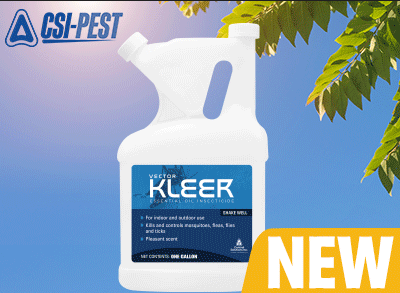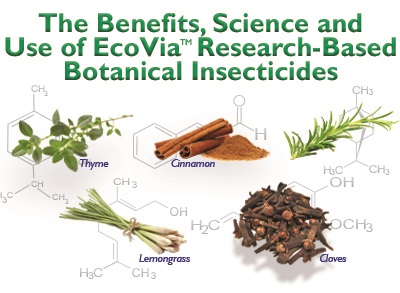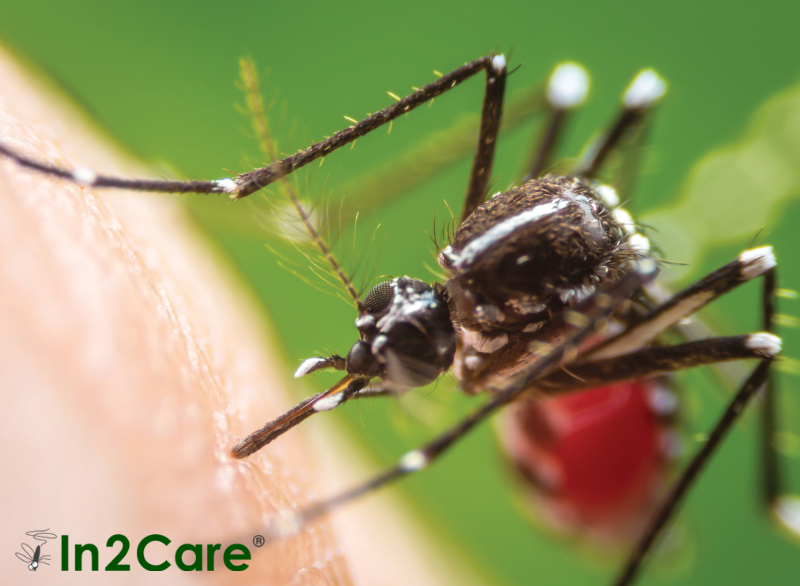Must-have tools for PMPs

Behind every great pest control professional (PMP) is a vehicle outfitted for any situation. The tools may differ based on the type of client, but this list can help ensure you are always prepared, anytime and anywhere. (note: the list doesn’t include application equipment/products - which is a given!).
-Flashlight: The single, most important piece of equipment a PMP can carry is a durable, powerful flashlight. If you can’t see the pest, you can’t eliminate it. There are regulations on flashlight use in potentially explosive environments (such as grain bins), so you may need an additional, intrinsically safe flashlight for those circumstances. And, it’s a good idea to have two working flashlights, extra batteries or a battery charger.
-Vacuum and extension cord: The fastest way to remove a pest population is to vacuum what you see before doing any chemical treatment to the area. Don’t wait for pests to encounter your pesticides!
-Extension pole with duster head: Like vacuuming, having a duster head on an extension pole to knock down spider webs and old wasp nests helps remove pests from around structures and demonstrates added value to your customer.
-Ladder: A safe ladder that has been inspected can lower the opportunity for accidents in the field. Have procedures in place for daily, quick inspections prior to use and recorded annual inspections for all company-provided ladders.
-Spill kit: Any spill kit needs to be large enough to clean up all the liquids carried on a vehicle on any given day. At a minimum, it should contain absorbent material, paper towels, kitchen-sized trash bags, a dustpan and broom.
-Safety kit: Keep safety cones, Instant Soap ‘N Water from BASF, eye wash and first aid (alcohol wipes, bandages, etc.), leather gloves, bump cap, knee pads, a clean roll of paper towels, and a reflective safety vest, in the vehicle.
-PPE kit: Always have plenty of PPE materials on your vehicle! Include safety glasses and goggles, chemical resistant gloves, respirator and coveralls.
-Rodent kit: Building a specific kit for rodent work is essential. A large bucket with a cloth organizer over the lip is great for exterior stations. This allows room for extra station keys, a brush to clean stations, extra trays and rods, new bait, and a trash bag for the old bait. For an interior kit, remember to add items like snap traps and glue boards.
-Service kit: For interior service, especially at large properties, having all essential tools at your side means less trips to your vehicle to grab what you need. Include items like screwdrivers, ink pens, permanent markers, shoe covers, rubbing alcohol (to remove sticky residue on insect light traps or insect monitors), wiping cloths, paper towels and a telescoping mirror for inspections.
-Measuring wheel: Take the guesswork out of measuring your properties before you treat them.
-Garden rake: A great tool to rake back mulch/groundcover for inspection/treatment or to find bait stations buried in the landscaping.
-Collection containers: Sometimes you find an insect you can’t identify on the spot. Having leakproof collection containers allow you to take a sample with you to identify later using a microscope or to deliver to someone else to identify. Don’t forget rubbing alcohol – some insects will eat others inside the vial before you can get back to your vehicle!
-Identification guide: PMPs need a good field guide in their vehicles to identify pests once they are collected. Otherwise, you can’t do a successful treatment!
-Easily accessible product labels (label book and/or digital): A must when transporting pesticides! Yes, the containers have labels on them, but they wear down over time. Paper labels are easy to flip through but maintaining them may be a challenge. You need a defined process to make sure you have the most up-to-date copies for every book in the field and printing can become expensive. Digital access is easy through companies that offer apps and maintain them for you.
-Extra uniform: You never know when you might have a chemical spill, get caught in a downpour or get extra dirty at a client’s property.
-Small cooler: Having a small cooler in your vehicle will allow you to carry cold water, lunch or snacks for the day.







